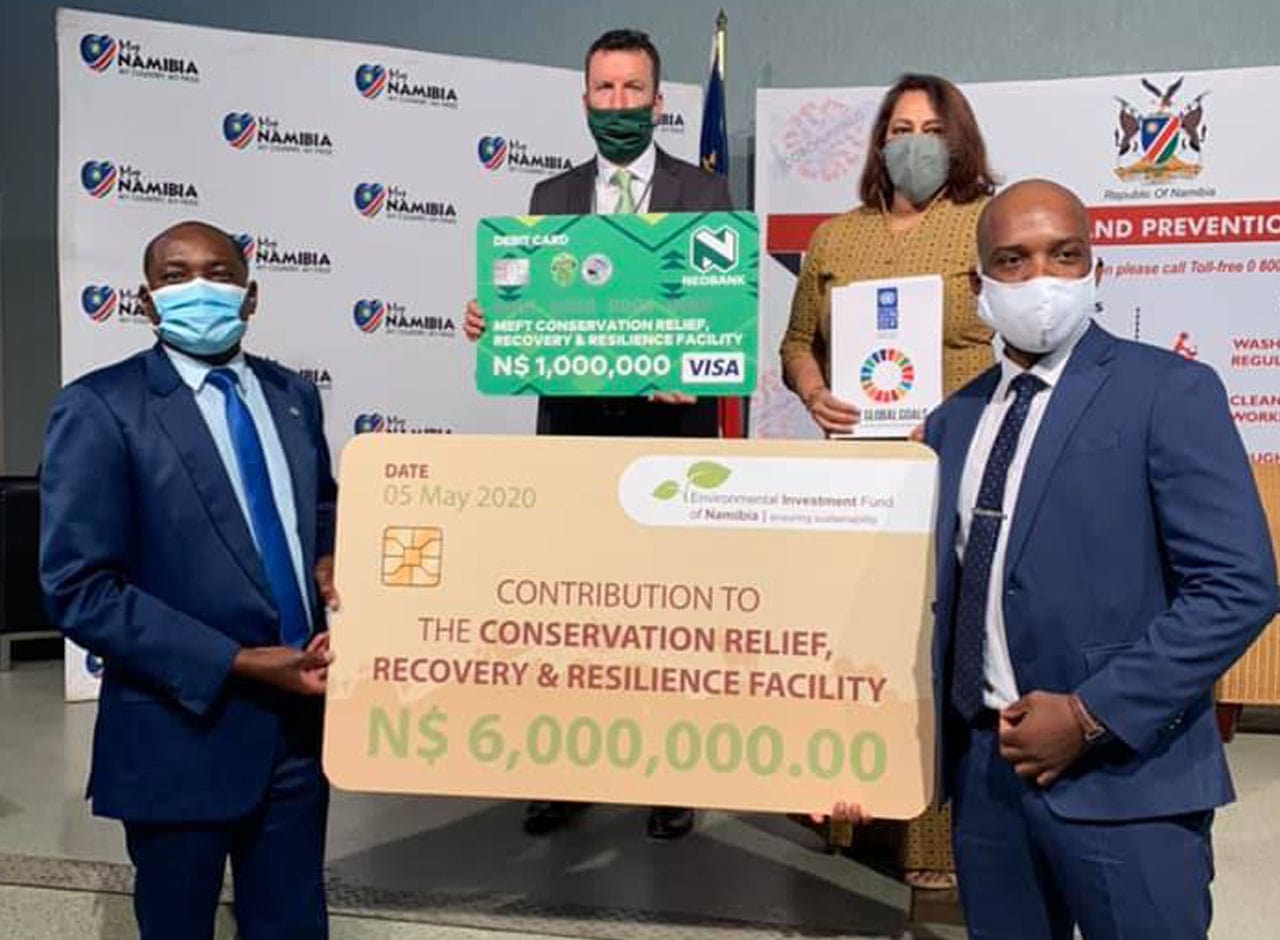Andrew Kathindi
A total of N$16 million has been raised for the Conservation Relief, Recovery and Resilient Facility which aims to address the long-term impacts associated with COVID-19 on the sustainability of the Community Based Natural Resource Management (CBNRM) Program in Namibia.
Of this amount, the Namibia Association for CBNRM Support Organisations (NACSO), the World Wildlife Fund (WWF) will receive N$7.5 million. The United Nations Development Program (UNDP) pledged an amount of N$1.5 million, while Nedbank Namibia has pledged an amount of N$1 million to the project.
This amount is about a quarter of the conservancy income from tourism operations per annum, which the Minister of Environment, Forestry and Tourism, Pohamba Shifeta said comes to approximately N$60 million per year, with an additional N$65 million paid in salaries to tourism staff working and living in the conservancies.
About 230,000 Namibians live within the CBNRM areas. At least 60 percent are reliant on sustainable natural resource use for their livelihood.
“The jobs of 700 community game guards and rhino rangers, 300 conservancy support staff, and 1,175 locally hired tourism staffs are in jeopardy. The 30-year effort to build Namibia’s communal conservancy program is under severe threat,” said the Minister. He said that the massive loss of tourism revenue caused by the pandemic has impacted both conservation and the hospitality and travel industry.
Conservation and tourism in Namibia are inextricably linked as they contribute to each other, as most of the inbound leisure tourists arrive in Namibia to enjoy the country’s abundant wildlife, vast landscapes and award-winning conservation programs.
Shifeta added, “For the past 30 years, Namibia’s communal conservancy program has worked with government to transform flora and fauna conservation into a viable land-use option for rural communities. Consequently, there are 86 registered conservancies today that cover more than 166,179 square km (20 percent of Namibia). CBNRM works well for approximately 222,000 community members (9 percent of Namibia’s population) and has resulted in the widespread recovery of the nation’s wildlife population.”
The Environmental Investment Fund (EIF) of Namibia, which contributed N$6 million towards this facility, will serve as the Secretariat that administers the monies.
EIF Chief Executive Officer (CEO), Benedict Libanda said more than 4,900 jobs were facilitated by communal conservancies in 2018, with the majority employed as game guards or other jobs within the tourism and hospitality industry, representing N$65 million in wages and salaries.
“All these economic benefits have been eroded by COVID-19, threatening household food security, unsustainable utilization of natural resources, and poaching. The funds availed to this Facility will be used to support communal conservancies and community forests to cover their operational costs of ensuring biodiversity conservation. This will include support towards salaries, anti-poaching activities, natural resource equipment and human wildlife conflict,” the EIF CEO said.
Libanda also told Windhoek Observer that the EIF currently has a relief period of six months on all their green concessional loans. However, as many who have benefited from the environmental loans are currently not generating income due to the current situation, he said the EIF will continue to monitor the situation for any new developments before making a decision on post-pandemic loan recovery efforts.
Meanwhile UNDP Resident Representative Alka Bhatia said UNDP will further support the Ministry and its partners to assess and understand the full impacts of COVID-19 on the tourism sector focusing on the community based conservation efforts.
“UNDP is supporting Namibia to assess the social and economic impacts of COVID-19 and take urgent recovery measures to minimize long-term impact, particularly for vulnerable and marginalized groups, and to help societies to recover. Under the leadership of the Office of the Prime Minister, UNDP is working to develop a multi-sectoral and multi-stakeholder resilience strategy,” Bhatia stated.




